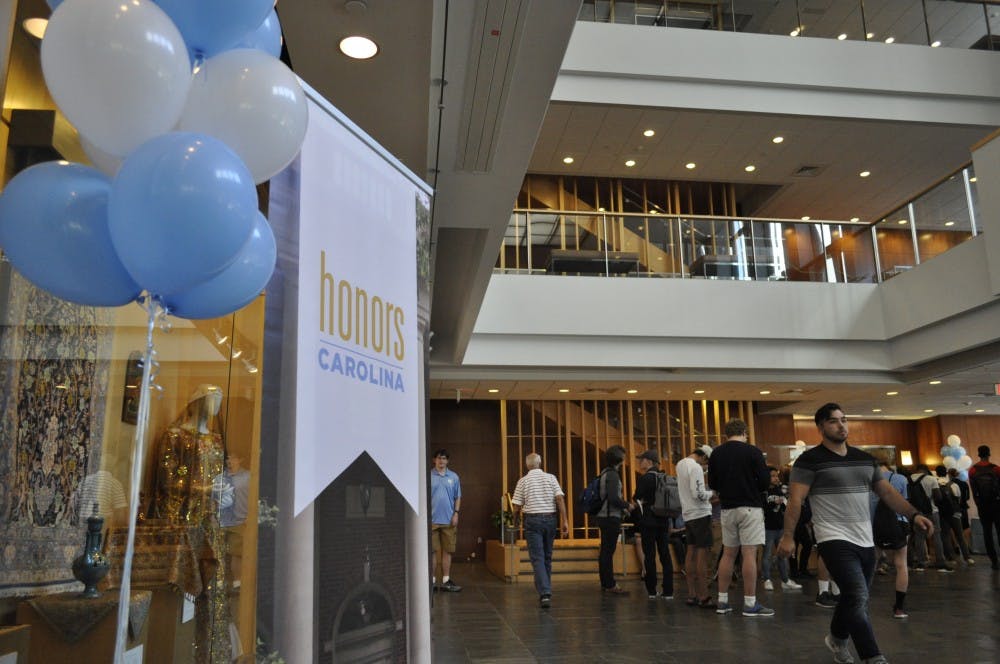Out of the thousands of high school students applying to UNC every year, roughly 10 percent of each incoming class will be accepted into the Honors Carolina program.
“It’s a multifaceted program,” said Ritchie Kendall, assistant dean for Honors Carolina and associate professor of English and comparative literature. “We offer over 200 unique courses, student-centered, generally small, research-oriented, all across the disciplines of the University.”
Applicants do not apply directly to the merit-based program as high school seniors; rather, the Office of Undergraduate Admissions will nominate students into Honors Carolina upon reading their applications. However, students who are not nominated still have an opportunity to apply to Honors Carolina in later semesters.
“Students who fill out the applications now have the option to check the box for Excel @ Carolina options. Every student has the opportunity to do that, so a student can check up to three of those boxes and Honors Carolina is one of those,” said Jason Clemmons, director of curriculum, recruitment and operations of Honors Carolina. “We look at them to see if there is an interest from a particular student for the program.”
Students who receive merit-based awards such as Carolina Scholars and the Morehead-Cain Scholarship are automatically placed in the program.
Yuxiang Fan, a sophomore business and computer science double major, said that his acceptance into Honors Carolina played a role in his decision to come to UNC. As a high school senior, he was contacted by one of the admissions officers, who later met with him over lunch to discuss his college plans.
“I have met a lot of really, really smart people that I connect with easily and a lot of us have common interests,” Fan said.
First-year Honors students must take an Honors First Year Seminar and an additional Honors course, said Clemmons. Liz Zarzar, a sophomore pre-biostatistics major, took an Honors anthropology course called 'Saving the World? Humanitarianism in Action,' where she and her classmates studied Hindu gods and goddesses and visited a temple in Cary.
“Honors classes are usually really small, between 20 to 25 people. It gives me a lot of personal interaction with my professor, and I get to know my peers or classmates a lot better,” Fan said, who is currently taking an Honors-level class called 'Introduction to American Islam.' “Especially in my lecture-hall classes, I just sit with my friends and I don’t meet a single new person or talk to my professor.”



